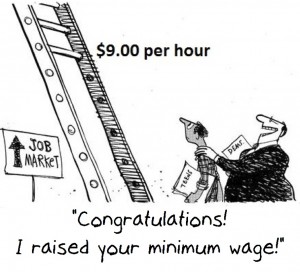Minimum wages: a necessary claim?
 Minimum wages have re-appeared on policy agendas accros Europe and the US. There are some reasons.
Minimum wages have re-appeared on policy agendas accros Europe and the US. There are some reasons.
First, in the richer EU countries the minimum wage is seen as an attractive tool to curb the downward pressure on wages that is caused by the stream of low-wage immigration. Second, many advocates of statutory minimum wages see the as an alternative tool that could substitute collective bargaining in protecting workers against low wages, especially in countries where collectiev agreements is deteriorating. Third, minimum wages are increasingly associated with other policy objectives, such as pay equality and fighting poverty.
In our Call you find some demands on minimim wages:
- to define a common procedure on adequate minimum wages. Social dialogue and collective labour agreements are essential elements of this procedure
- to define a common norm on adequate minimum income schemes.
- during the first years these are still based on the 60% median income
- a new scale to substitute the median income has to be introduced, based on a method of budget standards
- to organise solidarity funds to achieve these adequate minimum income schemes in the member states and the regions that are most affected by globalization and the crisis.
Minimum wages and social dialogue are hand and glove.
ETUI gives in his report 128 some clues:
- lower levels of GINI inequality are found where there is high collective bargaining coverage and a national statutory minimum wage;
- the combination of sectoral minimum rates and high levels of collective bargaining coverage can be regarded as constituting a functional equivalent to a binding statutory minimum wage at national level;
- minimum wage systems with statutory rates at the national level are related to relatively lower wage floors. The relative rates are positively related to the degree of collective bargaining coverage. Lower wage floors are in this situation the price for higher minimum wages (internal solidarity between workers);
- in systems without statutory minima, the higher rates enjoyed by the insiders appear to come at a cost for outsiders;
- a system with neither a national statutory minimum nor high collective bargaining coverage is unlikely to, produce minimum wages with a strong bite.
Essential in these findings is the emphasis on social bargaining on sectoral AND national level. High minimum wages are hand and glove with collective bargaining coverage.
In our claims we therefore ask a common procedure based on collective bargaining.
Our claim regarding common norms does not preclude that countries have higher minima. We just establish a minimum threshold from where collective bargaining can starts.
Minimum wages are a necessary claim only when they are accompied with a high level of collective bargaining.
The reportbook 128, Minimum wages in Europe: does the diversity of systems lead to a diversity of outcomes? can be found on www.etui.org/publications/reports

Leave a Reply